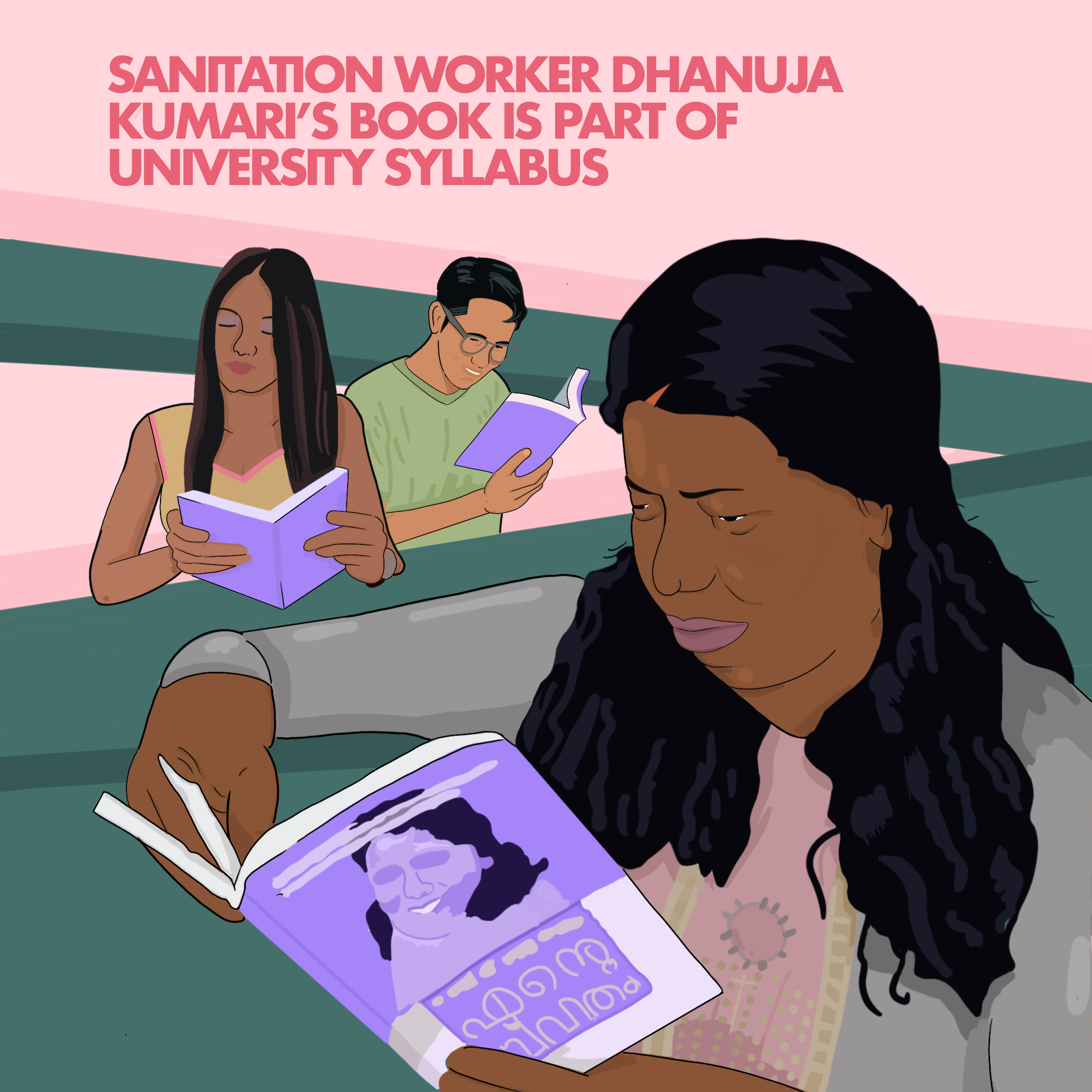
It is surprising how neither her publishers or the university informed her about the addition of her book in the MA syllabus of Calicut University and the BA curriculum at Kannur University.
‘Chenkalchoolayile Ente Jeevitham’ (My Life at Chenkalchoola), sheds light on the perpetual struggle faced by socially excluded individuals due to caste and religion. She ingeniously portrays how the environment in Chenkalchoolayile in Thiruvinantapuram dictates their fate as it is stiflingly enmeshed in their journeys. “To keep yourself from falling into depression or deviating into criminality, one has to struggle hard,’’ she said in an interview with New Indian Express.
Her tryst with writing started when she was advised to jot down the good and bad moments of her life by the nuns at her school. “I threw away everything I wrote or burned them because I didn’t know I had to keep them or that I would write a book someday,” she said in her interview in the online publication Her Story. But years later her exasperations of caste and religious discrimination was published by Chintha Books in 2014.
Confronting her past, she shows the students the ills of social structures that perpetuate poverty and discrimination while living in the narrow alleyways of Chenkalchoola.
While the author found her piece in the sun, the universities have disregarded the basic principle of intellectual property rights. The author has the right to know where and how their work is being used, especially in an academic setting. It is the failure of our systems that prevents marginalised authors from exercising control over their own work.
After all the attention she continues as a sanitation worker for the government waste management initiative ‘Haritha Karma Sena’ while working on another book.
Now you could show your support for Dhanuja by sharing our Instagram post: https://www.instagram.com/p/DAvkETSoCPg/
#powertoher #caste #casteism #castediscrimination #kerala #kannuruniversity #calicutuniversity #books #uni #chenkalchoola #thiruvananthapuram


